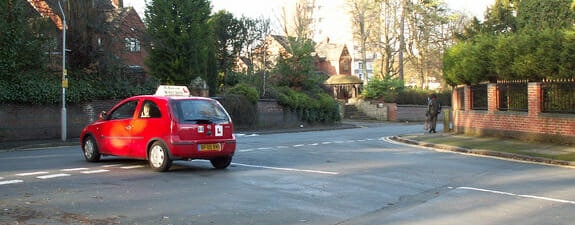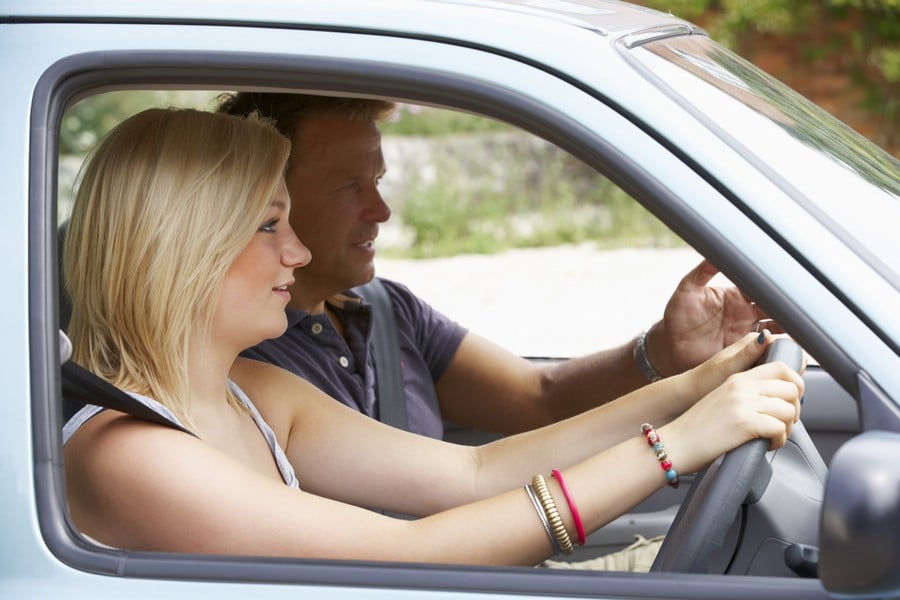
Hearsay has led to many misconceptions about driving tests in Bournemouth and around the UK. If you have been listening to the opinions of other learner drivers, there is a pretty good chance that you already believe some of the ideas below. This piece will separate fact from fiction, so you can go through your driving lessons in Bournemouth, and then driving test, with the right frame of mind.
“No one passes on Mondays”
Or Fridays. Or Thursdays. You get the point. People will come up with generalisations instead of accepting that they were just not good enough on the day. Stay true to everything you have learnt in your lessons (assuming you learnt from a qualified instructor). Keep your nerves in control. You will most likely pass your test even if it holds on Friday 13th!
“Go early because examiners have a quota of people they can pass over the course of a day”
The only thing examiners are focused on is making sure that individuals have the ability to drive safely and competently on the road. They use set criteria when judging your performance and competence and time of the day has nothing to do with it. An examiner’s decision making will not be affected even if a dozen people have failed or passed tests before you. The time you take your test should therefore be determined by personal factors like when you are most comfortable driving, when you have the time, etc.
“You should only need to take one or two driving lessons to pass your test”
According to the Driving Vehicle Standards Agency (DVSA) most people in Bournemouth need 2 hours of lessons with an experienced instructor for every single year of life. The agency says teenagers normally require at least 45 lessons with an instructor, and an extra 22 hours of private practice on their own. These numbers should give you an estimate of how much time you need to spend with a qualified driving instructor in Bournemouth before you can consider going for a test. “One or two driving lessons” just won’t cut it.
“Apply common sense and you pass the theory part of the driving test”
You can’t pass your test if you are not knowledgeable in both driving theory and practical experience. Instead of relying on common sense to pass your theory exam, take time to study the materials and test yourself in a mock theory exam. Many Bournemouth driving schools will provide this test as part of their package so ensure that you can perform excellently in mock tests before proceeding to the real tests. Although you can answer some of the questions with common sense, some of the questions require pure knowledge.
“A crash course in driving is guaranteed to help you pass”
It’s such an unfortunate name for an intensive driving course, and this is a big myth. When it comes to driving, we all learn differently. A crash course that benefited someone else may not benefit the next person. Crash courses can accelerate learning in any subject. However, success or failure is fully dependent on your personal performance. If you feel a crash course will benefit you, you can give it a go, but there is no guarantee that you will pass your driving test.
“All driving test routes are the same”
No, they are not. Most test centres have diverse test routes. It is in your best interests to know a good number of these routes and practice extensively on them before going in for your test. Your driving instructor in Bournemouth should be able to take you through the Bournemouth driving test routes. The last thing you need on the day of your test is to face a completely new route. However, understanding the route is only one half of the game. You still need to demonstrate your driving ability.
“If you stall you will fail”
This is not always the case. Examiners usually treat stalling in a cause and effect manner. If you stall on a free road where traffic wasn’t affected, you will most likely not be penalised. If you stall at a green light after waiting for it to come on and fail to start the engine before the lights go back to red, you are likely to be penalised. It is therefore not black and white.
“Look at the mirror every 10 seconds”
Some say you should look every 7 seconds, but, whatever you have heard, it’s a myth. Examiners are looking to see how you use mirrors when signalling, before changing speed and before changing direction. Keeping a count for when you should look at the mirror will only distract you from the road. Keep in mind that you don’t need to fully move your head to show the examiner you are using the mirror! They can read your eye movements.
Driving tests are hard enough. Don’t make them any harder by listening to misconceptions and generalised statements. Stick to what you have learnt with your instructor (assuming you have learnt everything possible), drive in a relaxed manner and your chances of passing the driving test at the first try will be pretty good.
Click here for more driving test advice.



